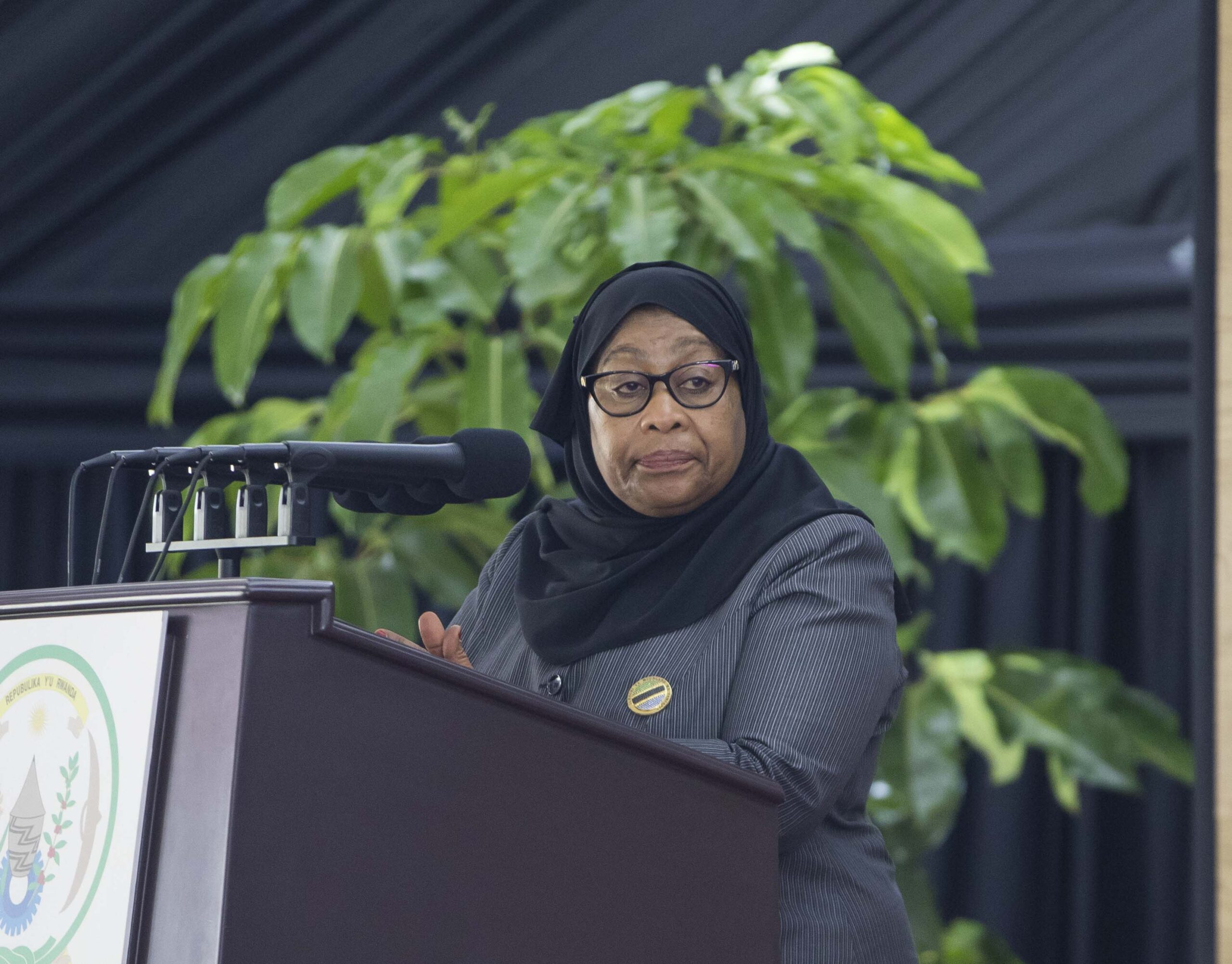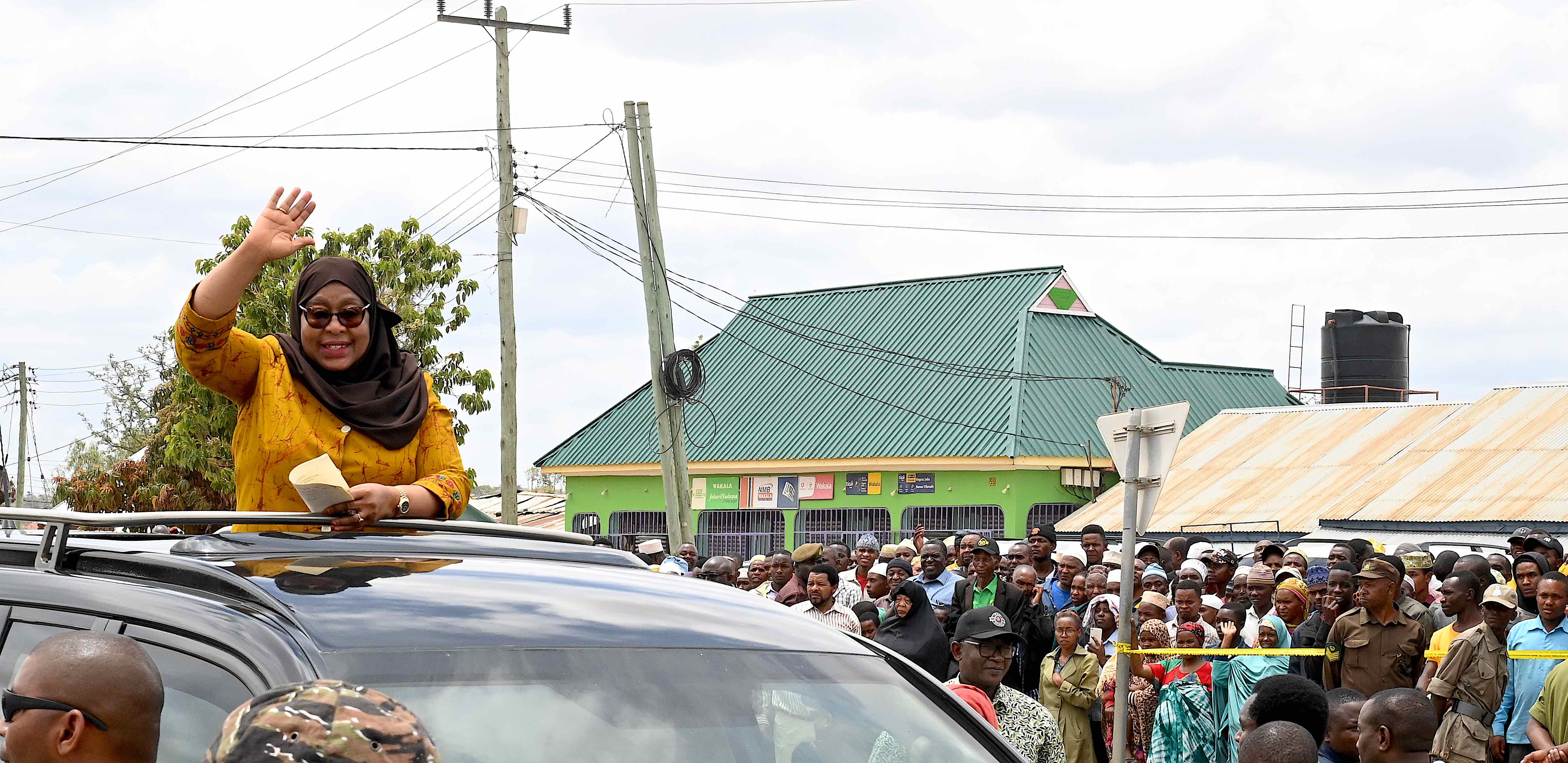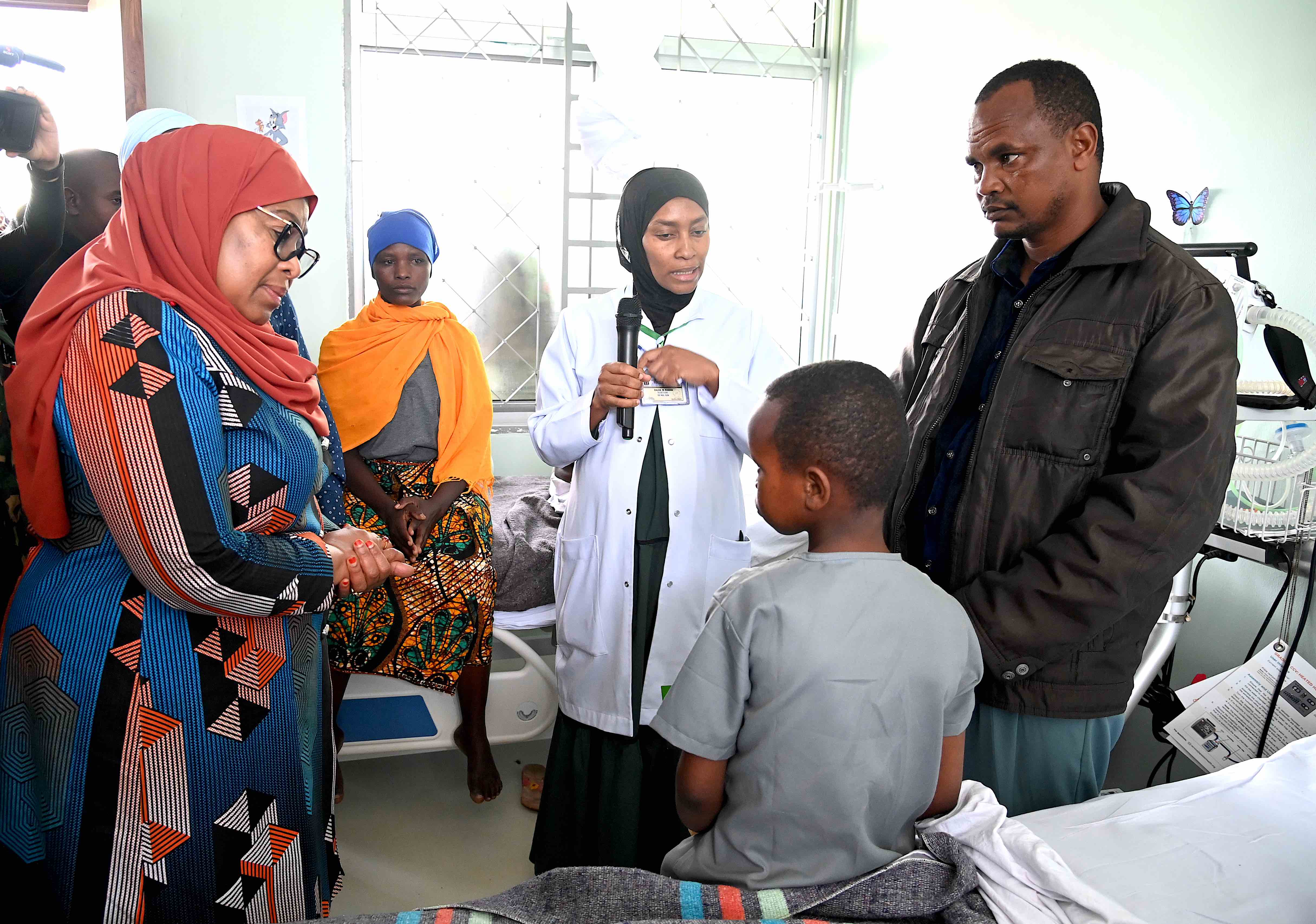Two years have gone by since President Samia Suluhu Hassan took office on March 19, 2021, by a constitutional provision following the unprecedented death of the late President John Magufuli, who passed away on March 17, 2022, from a complication related to heart failure.
President Hassan is the first female to serve in the position since independence, and her tenure is credited by many with causing a dramatic U-turn in social and political spheres among Tanzanians.
President Hassan reiterated on different occasions her commitment to restoring democracy, freedom of rights, and setting a favorable political climate, something that had largely been questionable during the preceding six years of a tense situation marked by a heated political atmosphere that was perceived by many oppositions and others in Tanzania as a deliberate regime crackdown on democracy and civil liberties.
In her inaugural address to the nation on March 19, 2021, in a reconciliatory tone while stressing the importance of national unity and the need for everyone to put aside their differences and look forward. The president insisted that “Sio wakati wa kunyoosheana vidole,” which translates to “It is not time to point fingers to indicate who has done wrong,” because it is not the right time to do so.

In her initial strategic efforts to reopen democratic space, the President commissioned a special National Task Force for Political Reforms in Tanzania on 2021. During the two years of its operation, the committee played a crucial role in engineering the political process and provided a platform to meet with democratic stakeholders, including political parties to address their concerns, which includes the most advocated issues relevant to electoral reforms, press and political freedom.
In the aftermath events following the submission of task force report to the President Hassan on October 21, 2022, the presidential decree that had been imposed in 2016 restricting political party gatherings was lifted, enabling political parties in Tanzania to organize public rallies unimpeded in various parts of the country.
Furthermore, a number of exiled opposition figures can now freely express confidence in returning home, allowing them to witness the dawn after a sleepless night of nightmares. But before then freedom of the press and public confidence can be readily apparent across media outlets and social media.
During last week, President Hassan’s demonstrated something unusual that went against the conventional traditional political practices in Tanzania as she attended the commemoration of the World Women day organised by the National Council for Women BAWACHA, the women wing of the CHADEMA, main opposition party in Tanzania on 9th March 2022.

The incident was not only unexpected but also historic given that it was the first time it had happened in the entire period since Tanzania’s multi-party system was reinstated.
The president emphasized the opposition’s call for constitutional reforms in her speech to the audience, saying that “no one denies a call for the new constitution (literally including herself) and even her party.” The president also stated that there are conservatives in both the opposition and his party, the CCM, who would not want to see what had happened take place.
In examining her actions, the president’s beliefs on Tanzania’s political process are greatly influenced by two key factors. First, her stances are shaped by the so called the Samia’s 4Rs philosophical tenets, which stand for reconciliation, resilience, reforms, and nation-building.

The President supports for political tolerance, national unity and mutual understanding among political players since she entered the State House, she demonstrates a favor for accommodationist politics over those of isolation.
On the second hand, the President is pro-economic development, through her slogan of “Kazi iendelee” which translates as “ A Work to build the Nation must continue”, we can understand that the president believes that the likelihood brought about by political reforms at early stages may provide a solid basis and a doorway to help the country achieve its economic goals.
Which means her preferred political reconciliation is geared towards gaining national and international acceptability among investors, development partners and in multilateral organizations to support fueling her social-economic projects, as a consequence she would rather be moderate unlike her fellow party conservative colleagues.
The President’s actions have reversed the political mood and game in Tanzania, and completely wrecked it from her predecessors’ legacy. She is perhaps the most underrated politician who could have been anticipated to make such a number of changes in just two years’ time.


